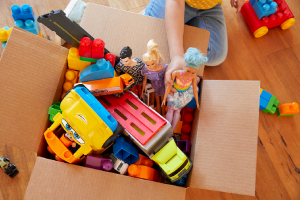Developing different skills in your child is very important, but it is obvious that a child will not like it if their lessons will not have any entertainment factor in them. For this very reason, you should get children’s pretend playsets. This will not only inculcate the right values in them but also keep them entertained and give them a sense of motivation to learn something new every day.
Encourage children to engage in pretend plays for these five reasons:
Creativity:
- Flexibility and creativity are fostered as a result of this activity.
- To aid young people in comprehending a different point of view.
Aids in the development of social and emotional skills:
- They are rehearsing emotional and social roles in life as they play to be other people or objects.
- Acquire a sense of self-worth and self-knowledge.
- The ability to recognise or respond to the feelings of others while participating in imaginative group activities is critical.
Language and communication abilities are improved as a result of this.
- They are exposed to various languages that they may not encounter daily.
- It’s entertaining and a good starting point for learning how to make a conversation.
- As they become more comfortable with the language, it can help alleviate some of their stress.
- An essential social skill is conveying one’s thoughts to others.
The ability to think, learn, and solve problems is honed.
- Children’s pretend play entails presenting children with challenges and circumstances that they must solve or develop ways to deal with.
- Improve their ability to remember new information and recall old information.
- When an object or a person puts a new significance in the thinker’s mind, this is called abstract thinking.
Physical growth is boosted
- Being an aeroplane pilot, climbing stairs as a firefighter, etc., requires physical exertion.
- Feeding or dressing a doll helped strengthen fine motor abilities.
- Getting a taste of the rough stuff and discovering one’s boundaries.
How to motivate your child to participate in pretend plays?
- Play with your child face-to-face so that your youngster may mimic your gestures/fake motions to develop pretend play.
- Repetition is entertaining when it’s kept simple.
- You can’t just sit back and watch — you have to participate!
- Make the appropriate toy selections.
- Take kids to the mechanic if they enjoy playing with automobiles so that you can introduce them to new concepts.
- Travel to new places (such as the zoo) and turn it into a game at home.
There are numerous advantages to pretend play, such as:
- You’ll be able to establish new lines of communication with your child.
- You can join in along with their hobbies by following their lead.
- Inspiring and inspiring for everyone involved.
- Think symbolically with your child.
- Critical thinking is honed.
Pretend playthings:
- Your child’s favourite plush animal or doll is perfect for role-playing and pretending to be accurate.
- Puppets are brought to life through their moving parts.
- Encourages older youngsters to play with their peers.
- Familiar and straightforward things (such as a house or automobile) can be built with blocks and lego at first. Individual leagues may then be used to “pretend” that they are natural objects (e.g., a bed or food for pets, etc.).
- Food/dishes/groceries in the form of toys – first feed the animal, then a restaurant, then a tea party.
More than simply a boy’s toy: automobiles
- A staple in the life of children, these toys are ideal for simple pretend play.
- They’ll need to put an operator in the car to get to the mechanic.
- A car or bus can be fashioned from a shoebox.
- Make simple/familiar objects out of playdough when you’re young. Later, prepare the tea set’s food, build roads, and so on.
- Old hats, shoes, scarves, and coats make excellent costumes and props—boxes and bags for the store or business.
If your child isn’t playing in a variety of ways, here are some things to look out for:
- Refraining from emulating other people’s actions.
- Having no interest in the surroundings.
- Inability to give and cooperatively receive attention.
- Incapable of sharing the spotlight.
- It’s tough for her to imagine what other people think and feel.
All children have unique ways of thinking and learning that they can use. You may be able to play to their strengths and gradually expand their repertoire of moves. Occupational therapists and speech pathologists are excellent resources if you have concerns about your child’s play.
Playing a role should be enjoyable for both the player and the audience. When kids let their imaginations run wild and engage in cooperative play, there are no boundaries to the wonder and joy they can experience.
Author name- Grace







